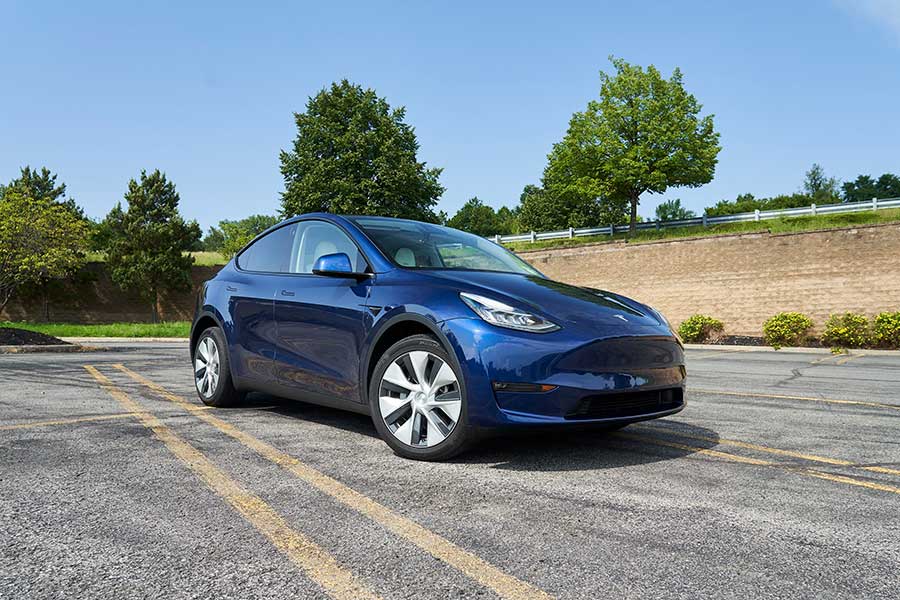The bill includes billions of dollars to repair roads, invest in clean energy and build a nationwide network of EV charging stations.

The US House of Representatives passed a $1.2 trillion bipartisan infrastructure bill Friday night, earmarking billions of dollars for electric vehicles and clean energy and handing President Joe Biden a win after months of negotiations among Democrats. The bill passed the Senate in August and now heads to Biden’s desk to be signed into law.
The bill sets aside $7.5 billion to create a nationwide network of EV charging stations and expedite the adoption of electric cars this decade. Another $65 billion will fund an investment in clean energy and renewables for the nation’s electricity grid, and promises to create a more resilient system. Funds will also funnel to various clean energy technology projects.
In a statement, Biden called the bill “a once-in-generation bipartisan infrastructure bill that will create millions of jobs, turn the climate crisis into an opportunity, and put us on a path to win the economic competition for the 21st Century.”
Aside from the big boost in support automakers will receive from the charging station investment, the bill includes billions of dollars for traditional infrastructure projects. $110 billion is designated for fixing bridges and roads, while also investing in ways to reduce traffic fatalities. Another $39 billion will go to public transit, with an additional $66 billion reserved for Amtrak to repair lines and expand services in the US.
The 228-206 House vote on the infrastructure bill followed intense negotiations among Democrats. Some progressive members of the party had been withholding support for the bill unless a separate, and larger, social-safety-net and climate bill was also voted on. But on Friday night, a group of centrist Democrats promised to back that bill if they’re satisfied with an upcoming cost estimate from the nonpartisan Congressional Budget Office. They committed to a vote on the social policy bill no later than the week of Nov. 15. Most notably for the auto industry, that bill boosts the EV tax credit by $5,000.
Source : Cnet.com
